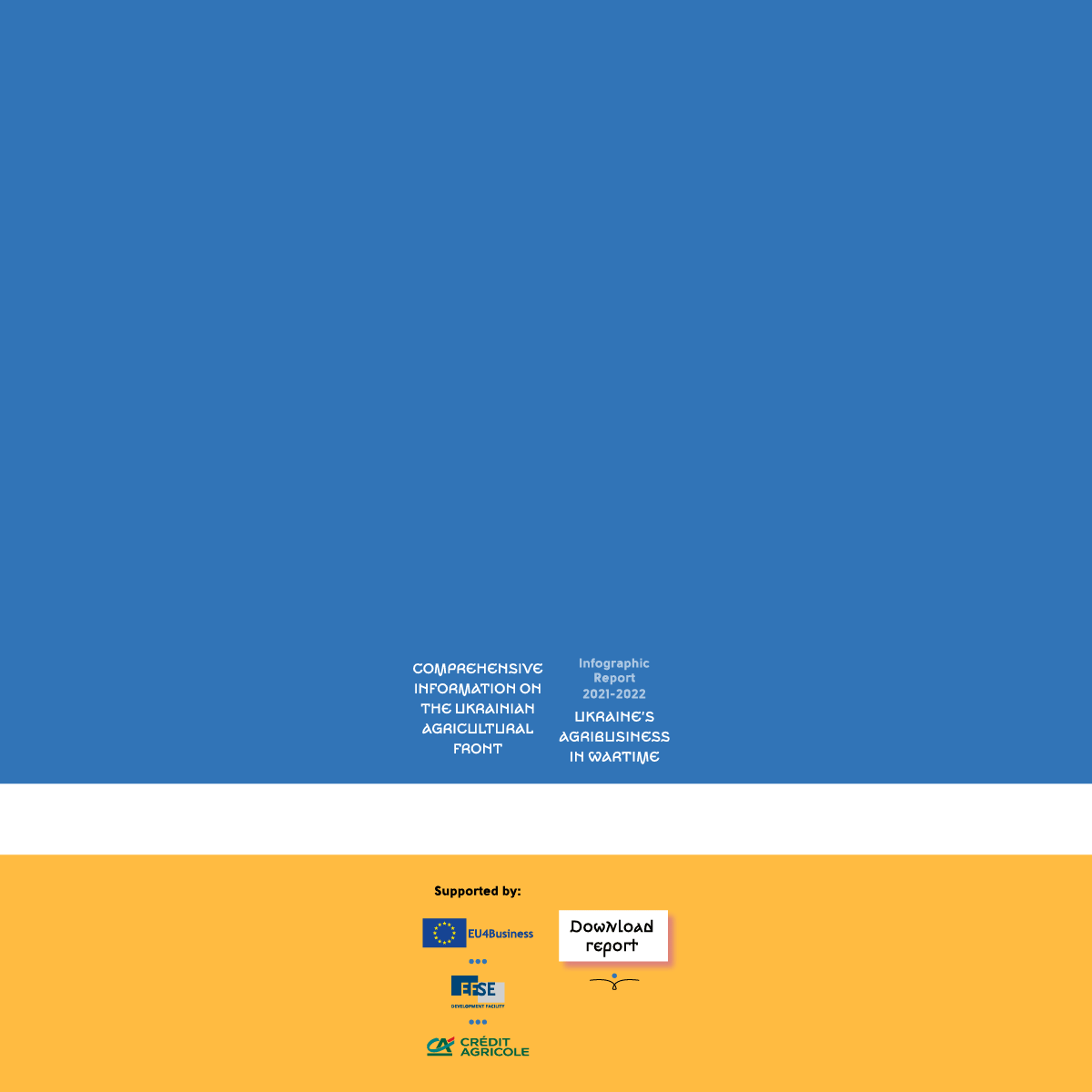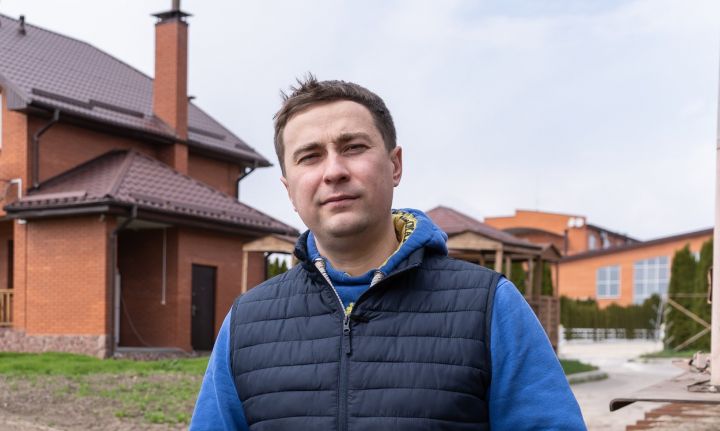To learn more about agribusiness in Ukraine, follow us on Facebook, on our channel in Telegram, and subscribe to our newsletter.
Rules of Life. Roman Leshchenko: Today I Сan't Imagine Myself Without Agro
Latifundist Media publisher Alexander Kamyshin interviews leading players in Ukraine's agricultural sector as part of his Latifundists program on YouTube. The speaker in this issue is Ukrainian Minister of Agrarian Policy and Food Roman Leshchenko.
Why he did not become an agronomist but studied law, how his father discouraged him from going into politics, working in the ministry, about land reform in Ukraine, his love for cattle breeding and winding down in his homeland in the family circle.
Here are selected highlights speaking volumes about Ukraine's Agrarian Minister.
On family farm and childhood
Agrodar is a farm founded by my father and I came up with the name. Agrodar is a merger of the Ukrainian words 'агро' and 'дар' meaning that the land yields. We established the charter of the farm that included all the members of the family dad, mom, my sister and me. At that time, the active process of dividing land into shares was underway and 33 ha of the worst farmland — loamy and forested land — was given to our family. This is how our farming activities started.
Besides, we had numerous livestock. Being a schoolboy, I had to look after pigs. There were quite a few of them. On average there were about 25-30 pigs. It was an extremely physically demanding job.
I realized that I had to study to bring myself to the next level. And if I had stayed in the village, I would not have been able to make any serious progress.
Well, the animals really motivated me. I dreamed of finishing school with good grades and going to a proper university. My biggest ambition at the time was to go to Kyiv and move up the career ladder. Away from the pigs.
On "female" farm management
My wife is the real manager. She fulfills a managerial, organizational function. She is a signatory since I am in public service and cannot have shares in corporate rights. Under the gift contract, I have transferred it all to my wife. This is all reflected in the declaration. And my wife is now actually and legally in charge of all the agricultural production. I can only come for a weekend, be with my family, come to the farm to restore the balance. It is very important for a person who works in an office in Kyiv not to lose a true connection with people and the field.
On technologies
Currently, we are testing a combined technology – classical, mini-till, and strip-till. But from what we can see, it is strip-till technology that preserves the most moisture.
We strongly believe that strip-till has a future. We believe that residues should be left in the field and mixed properly. The farm is slowly moving towards this, we are learning.
On education
I had a really good school provided by my late father. He then dreamt that I would become an agronomist, graduating from the Uman Agricultural Institute, that's what it was called at that time. He studied agronomy at that institute. And my mother studied accounting at the Uman Agricultural Institute.
They had their big dreams: mom's were for me to become a qualified accountant and dad's were for me to become a class agronomist. I enjoyed studying history and foreign languages. I was also very fond of law.
And my father realized at some point that forcing me to be an agronomist was not going to make me one. So he said: "Son, look for a kind of work to adore, the one that brings you joy and pleasure." When I said I wanted to study at Kyiv University and become an international lawyer, travel the world, dad was very concerned. He told mom: ''Galya, we are losing our son.'' I had ambitions to prove to my father that not everything in life is agro. Later on, as life revealed, law school was left behind, and everything my father taught me came in handy.
On love to agro
Today I can't imagine myself without agro, without production. This is something that is very close to me. Although I have been teaching for about 10 years at the Financial Law Department of Kyiv University and I am engaged in legislative work in the field of land reform. However, this rural element, the place, the roots, everything where I started will always be in my heart.
On fatherly advice and politics
My father told me not to go into politics. That I would be used, dragged through the mud, framed, destroyed, that I would not be able to go against the system. This system, he said, had learned to defend itself over 30 years. And this system will do everything to chew me up and spit me out. He was not happy about all this.
On land reform
If someone had told me two years ago that I would carry out land reform in Ukraine, I would never have believed it. The opportunity to implement land reform and lay the foundations of a re-established ministry comes once in a lifetime. The understanding was that it was necessary to change the concept itself, to hear people's opinions, to unite in agrarian associations, and to adopt a conservative version.
I am not ashamed of this reform, of the way we and the people consolidated our decision and eliminated the problem of protests, rallies, etc. I have never once regretted taking on such responsibility.
On land market
There will be no frenzy to sell land. Today people understand that land is the best asset for its owner which meets the 3 criteria:
- a stable income
- ever-growing price
- one can start farming any time
Many young people who worked abroad in big cities today are returning home for the pandemic and the crisis. They start working on their own land. Some are gardening, some are growing vegetables and so on.
On top of that, everyone recognizes that Ukrainian land is undervalued. And most people understand that in 5 years after the market is launched, the land will obviously be worth dozens of percent more than it is now.
On Cossack spirit
I feel I am a Cossack. No fight equals no life. You have to fight all the time. And the more you are broken or destroyed, the stronger you become. One becomes ready to fight and go through to the end.
On livestock farming
I am fond of livestock farming. I trust in livestock farming. Livestock farming is the future. It needs to be developed, we need to progress, and we need to innovate. One cannot campaign for the restoration of livestock breeding without being engaged in it. It is an issue of values. If it is fast money one seeks for – planted, harvested – it is crop production. And if one is forward-looking, he should obviously focus on livestock farming.
On family
Back in the 90s, I grew up without my father. He and my mother were away to earn money. At that time, as a kid, I made a promise to myself that I would always be there for my children. I thought that I could plan my life so that my children would grow up with their father. Whenever possible, I always try to be with my family.
I have young children and they have a great need for a father right now. So I try to spend as much time with them as possible. Explaining why their father is away all the time is rather complicated. They are always asking: "Why does daddy live on TV and not with us?" And sometimes they ask such penetrating questions that I even hesitate how to explain it to them.
The greatest joy is to be able to spend time with them and recharge. Nothing else is needed. Just take them by the hand, take them for a walk in the garden, go fishing, go ice skating or ride horses. The most important thing is that they are in harmony, together with their family.
To be continued. . .
Serhii Herasymenko, Latifundist.com

